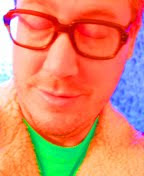 Like Menudo for cowboys (seems the lads are put out to pasture once they turn 17), the Tuscon Arizona Boys Chorus is just the sort of thing I would have longed to be a part of when I was 9 years old (I joined Yakima's "Company 7" instead). The 9-year-olds of today still have a chance though, as it seems the Tucson Arizona Boys Chorus is still going strong—though founder Eduardo Caso died suddenly in 1965. You can read the history of the chorus and see what they're up to nowadays here, where you can also find a by-decade timeline, complete with lots of neat photos. I've included liner notes and drawings from the back of the LP below—along with some Tucson Arizona Boys Chorus pictures from the 1950s-1970s.
Like Menudo for cowboys (seems the lads are put out to pasture once they turn 17), the Tuscon Arizona Boys Chorus is just the sort of thing I would have longed to be a part of when I was 9 years old (I joined Yakima's "Company 7" instead). The 9-year-olds of today still have a chance though, as it seems the Tucson Arizona Boys Chorus is still going strong—though founder Eduardo Caso died suddenly in 1965. You can read the history of the chorus and see what they're up to nowadays here, where you can also find a by-decade timeline, complete with lots of neat photos. I've included liner notes and drawings from the back of the LP below—along with some Tucson Arizona Boys Chorus pictures from the 1950s-1970s. The Cowboy Ballad, born on the plains of our Great
The Cowboy Ballad, born on the plains of our GreatSouthwest, and an important part of the folk-poetry
which has served to record the story of this young
nation, remains today as one of the few forms of
truly American music.
 The tunes were sung around the campfire and on the
The tunes were sung around the campfire and on thelong and lonely cattle trails—often improvised as soothing
lullabies by the vigilant cowboys on night-guard, as they
rode slowly around the restless longhorns.
"What keeps the herd from running,
Stampeding far and wide?
The cowboy's long low whistle,
And singing by their side."
 Cowboy songs are as honest and plain as the men who
Cowboy songs are as honest and plain as the men whosang them, that strange and reckless breed who roamed
the limitless range and lived a life of isolation and raw
simplicity under the broad prairie sky.
 It is music of a vanished era, for gone is the buffalo-
It is music of a vanished era, for gone is the buffalo-skinner, the gun-slinger, the rustler and the trail drive.
The romantic legend of the West remains only in story
and in song, the song of the American Cowboy.
 The Tucson Arizona Boys Chorus completely enchanted
The Tucson Arizona Boys Chorus completely enchanteda sophisticated Manhattan audience when they appeared
in recital at New York's famed Town Hall. Time reported:
"When it was over, the audience gurgled like a bunch of
doting mothers. Director Caso has polished the Tucson
Arizona Boys Chorus well. They were as well disciplined
as paratroopers. And their voices, like their faces,
were shiny and pure."
 Straight from the heart of the cow-country, where once
Straight from the heart of the cow-country, where oncethe wild-riding vaqueros whipped their ponies through the
brush, come Arizona's famous "Singing Ambassadors of
Good Will," the Tucson Arizona Boys Chorus.
 These "Singing Cowboys," whose ages range from 8 to 16,
These "Singing Cowboys," whose ages range from 8 to 16,were organized in 1939 by director Eduardo Caso. Today they
are one of the most interesting musical attractions on the
American entertainment scene, with triumphs that include
national radio broadcasts, annual coast to coast concert
tours, and several television appearances on
the Ed Sullivan Show.
 The summer of 1955 marked their first European tour,
The summer of 1955 marked their first European tour,and the result was a tremendous success.
Continental audiences were completely enthralled, as these
30 handsome lads sang their own original arrangements of
beloved western songs, complete with coyote calls
and the bawling of lonesome calves.
 They captivated concert-goers from London to Goteborg,
They captivated concert-goers from London to Goteborg,and in Hamburg, the Echo reported: "The audience
went wild, raged, applauded."
A French reviewer wrote: "These interpretations of folk-lore
transported us back to the very foundation of vocal art."
 In perhaps the finest tribute of all, a leading critic in
In perhaps the finest tribute of all, a leading critic inPortugal stated: "We saw how beautiful genuine
American songs can be."
 EDUARDO CASO, founder-director of the Tuscon Boys
EDUARDO CASO, founder-director of the Tuscon BoysChorus, was born in England and received his education
at London's famous Old Westminster School. Entering
the teaching profession, Caso served on the faculties of
several noted British schools before going to France
for studies at the Paris Conservatory.
 He then came to this country and began to sing professionally,
He then came to this country and began to sing professionally,but his successful and promising career was soon cut short by
illness. Caso went to Arizona to enjoy the healthful benefits
of its mild climate, and there the idea for the Tucson
Boys Chorus was born.
 His combined experience in singing and in teaching formed a
His combined experience in singing and in teaching formed aperfect background for this ambitious undertaking, and from
its humble beginnings in 1939, Caso has watched his dream
come true, for the Chorus has flourished and grown into
an organization of international renown.




2 comments:
Great job.bit of a surprise location but still well done.
I can some times close my eyes and be back on tour..
when you are spot lit on the 50 yard line in Soldiers field in front of 50000 you remember it...
thanks.
Bill (Billy) Ivey 61 to 63
That's awesome! Thanks for sharing, Bill. Are you in any of the photos posted here?
Post a Comment